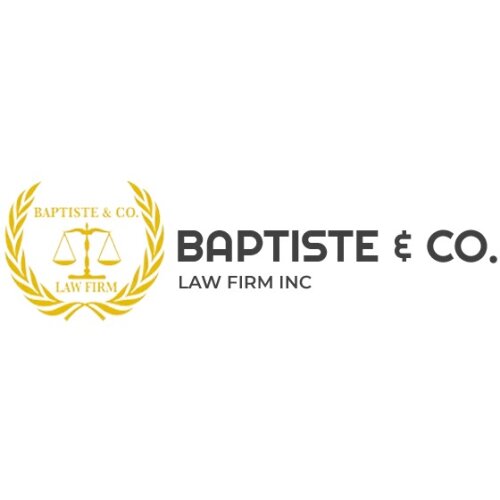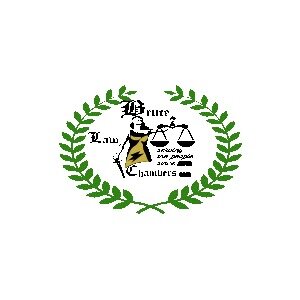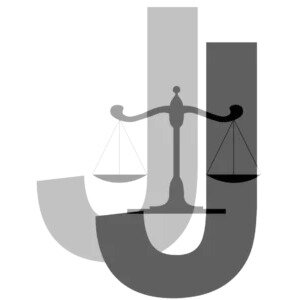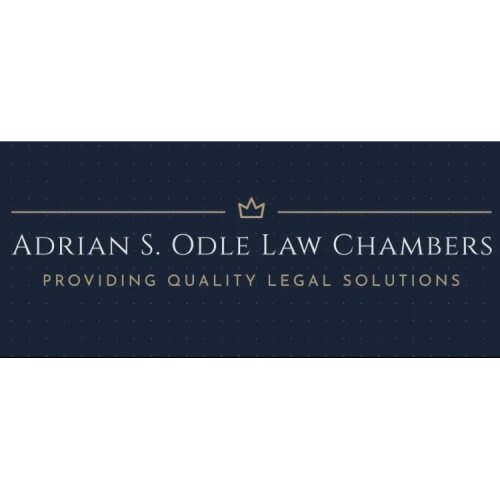Best Landlord & Tenant Lawyers in Saint Vincent and the Grenadines
Share your needs with us, get contacted by law firms.
Free. Takes 2 min.
Free Guide to Hiring a Real Estate Lawyer
Or refine your search by selecting a city:
List of the best lawyers in Saint Vincent and the Grenadines
About Landlord & Tenant Law in Saint Vincent and the Grenadines:
Landlord and Tenant law in Saint Vincent and the Grenadines governs the relationship between landlords and tenants in rental properties. This law outlines the rights and obligations of both parties, including issues related to lease agreements, rent payments, property maintenance, evictions, and more. Understanding these laws is essential for both landlords and tenants to protect their interests and rights.
Why You May Need a Lawyer:
There are several situations where you may need legal assistance in Landlord & Tenant matters in Saint Vincent and the Grenadines. Some common reasons include disputes over lease agreements, rent arrears, property damage disputes, eviction proceedings, or discrimination claims. A lawyer can help you navigate these complex legal issues, protect your rights, and ensure a fair resolution.
Local Laws Overview:
In Saint Vincent and the Grenadines, the Landlord and Tenant Act governs the relationship between landlords and tenants. This law outlines the rights and responsibilities of both parties, including rent payment terms, property maintenance obligations, eviction procedures, and dispute resolution mechanisms. It is essential to familiarize yourself with these laws to ensure compliance and protect your rights.
Frequently Asked Questions:
1. Can a landlord increase rent at any time?
Under Saint Vincent and the Grenadines laws, landlords must provide written notice before increasing rent. The increase must be reasonable and in accordance with the terms of the lease agreement.
2. What are the landlord's responsibilities for property maintenance?
Landlords are responsible for maintaining rental properties in a habitable condition, including repairs to essential utilities like plumbing, heating, and electricity.
3. How can a tenant terminate a lease agreement early?
Tenants must provide written notice to the landlord if they wish to terminate a lease agreement early. Some leases may have early termination clauses that outline the process and any penalties for breaking the lease.
4. What are the procedures for eviction in Saint Vincent and the Grenadines?
Landlords must follow the legal eviction procedures outlined in the Landlord and Tenant Act, including providing written notice and obtaining a court order for eviction.
5. Can a landlord enter a rental property without permission?
Landlords must provide notice to tenants before entering a rental property, except in cases of emergency or if the tenant has given permission for entry.
6. What rights do tenants have if they believe they are being discriminated against by a landlord?
Tenants who believe they are facing discrimination by a landlord can file a complaint with the Rental Accommodation Control Board for investigation and resolution.
7. Can a tenant withhold rent for repairs or maintenance issues?
Tenants in Saint Vincent and the Grenadines are not permitted to withhold rent for repairs or maintenance issues. Instead, they should notify the landlord in writing and seek legal assistance if necessary.
8. How can a tenant recover a security deposit at the end of a lease?
Landlords are required to return a tenant's security deposit at the end of the lease, minus any deductions for damages or unpaid rent. If the landlord refuses to return the deposit, the tenant can seek legal assistance to recover it.
9. Can a landlord refuse to renew a lease agreement?
Landlords have the right to refuse to renew a lease agreement at the end of the term, provided they provide proper notice to the tenant as required by law.
10. What should a tenant do if they receive an eviction notice?
If a tenant receives an eviction notice, they should seek legal advice immediately to understand their rights and options for challenging the eviction in court.
Additional Resources:
For more information on Landlord & Tenant law in Saint Vincent and the Grenadines, you can contact the Rental Accommodation Control Board or seek assistance from a local legal aid organization. These resources can provide guidance and support for resolving disputes and understanding your rights as a landlord or tenant.
Next Steps:
If you need legal assistance with Landlord & Tenant matters in Saint Vincent and the Grenadines, consider consulting with a qualified lawyer who specializes in this area of law. A lawyer can provide you with personalized advice, represent your interests in negotiations or court proceedings, and help you reach a fair resolution to any disputes or issues you may be facing.
Lawzana helps you find the best lawyers and law firms in Saint Vincent and the Grenadines through a curated and pre-screened list of qualified legal professionals. Our platform offers rankings and detailed profiles of attorneys and law firms, allowing you to compare based on practice areas, including Landlord & Tenant, experience, and client feedback.
Each profile includes a description of the firm's areas of practice, client reviews, team members and partners, year of establishment, spoken languages, office locations, contact information, social media presence, and any published articles or resources. Most firms on our platform speak English and are experienced in both local and international legal matters.
Get a quote from top-rated law firms in Saint Vincent and the Grenadines — quickly, securely, and without unnecessary hassle.
Disclaimer:
The information provided on this page is for general informational purposes only and does not constitute legal advice. While we strive to ensure the accuracy and relevance of the content, legal information may change over time, and interpretations of the law can vary. You should always consult with a qualified legal professional for advice specific to your situation.
We disclaim all liability for actions taken or not taken based on the content of this page. If you believe any information is incorrect or outdated, please contact us, and we will review and update it where appropriate.
Browse landlord & tenant law firms by city in Saint Vincent and the Grenadines
Refine your search by selecting a city.












